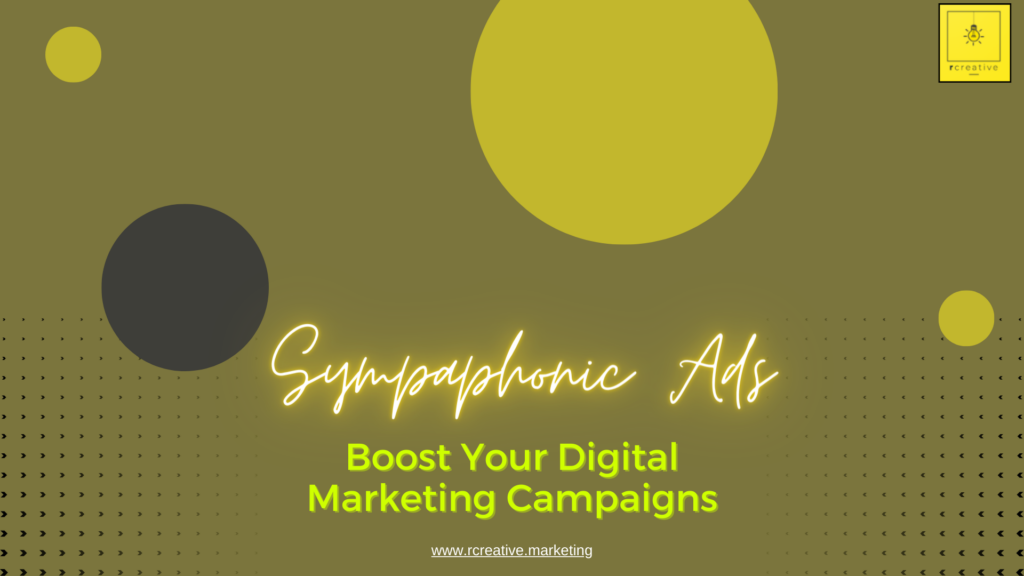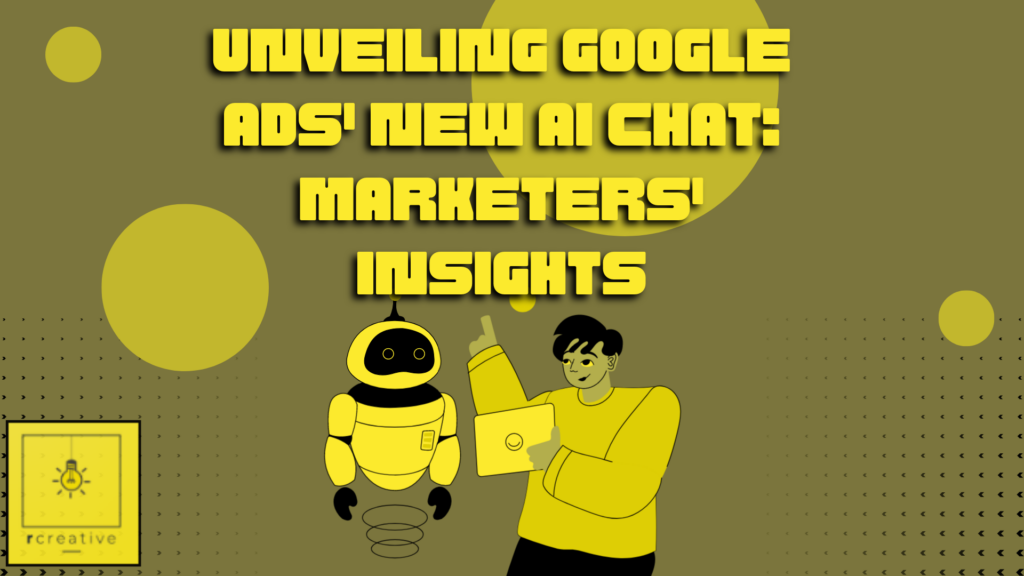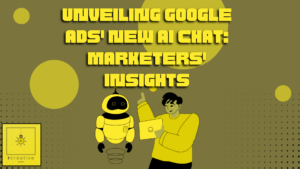We get it — AI content is in every other headline anymore.
But if you’re in marketing, you likely keep up with every press conference, every legal qualm, every tweet from Elon faithfully even if you’re numb. This is the entire future of brand marketing we’re talking about.
Just a cursory glance at LinkedIn shows you who’s unbothered by this new shiny tool, and who thinks computers will rule the world. Do you wonder if you’re the only marketer who’s not sure where you fall on whether AI can or should write your marketing content.
We hosted a panel discussion on AI in content and marketing with some of our colleagues in the marketing industry. R Creative hosted a video call, moderated by CEO Joshua Rystedt, joined by Jordan Jarrett (agency manager at R Creative), Ebony Clark (marketing manager at BELAY Solutions) and senior copywriter and content manager Eric Campos to talk shop about AI content.
Join the conversation as we consider the questions we have daily as marketers in a shifting landscape! (Spoiler: it’s not the end of the world)
NOTE: The following discussion has been lightly edited for syntax, clarity and flow.
RECAP: Is it AI’s world, and we’re just living in it? Our panel discussion with other leaders in marketing.
Everyone’s talking about AI. But how are we feeling about AI generated content?
Jordan: Speaking as a writer for over a decade, I’m cautiously optimistic. I think it is an opportunity for enhancement and evolving within the content writing marketing sphere entirely. I certainly utilize AI, but I don’t use it to produce all of my content. I use it as a planning tool, and an enhancement to what I’m working with. Only a human can work with things like brand awareness, brand voice and nuance. AI is a great planning tool, but it is tone deaf when it comes to writing, especially in light of controversies.
We work with a lot of what we work with, a lot of parenting companies, for instance — that’s where you have to be very tactful and sensitive. And those are two words for AI content, it’s not intuitive. You have to refine the input to get a proper output, even then you need to hand-hold the AI to get the content that’s appropriate to the situation and in representing your brand.
Ultimately, AI isn’t something that is coming; it’s here. It’s a tool that we need to refine our usage of, and not have it be a coverall option. As much as microwaves are a great tool to help us reheat our food, they don’t cook entire gourmet five-star meals.
AI doesn’t always get its info correct. It’s getting better, but still has a high error rate on facts. How do you evaluate the quality and effectiveness of AI generated content?
Ebony: I think we’ll still need to be that element of human hand-holding with AI in that area. Where AI can handle the bulk of the lift (say, 80%), there still needs to be that human element to add in the empathy that may be lacking, or to do the fact-checking.
There’s always going to be a margin of error, whether it’s written by a human or AI. It takes people with a certain set of skills and craft to be able to go in and fact-check it the way it needs to be.
Joshua: Absolutely. On a given content project at R Creative, we often have a writer and someone else who edit the content. I heard one technologist say, “Yeah, the AI has an error rate — but so do we.”
Ebony: Of course. AI is only as good and as effective as the humans who are putting it into the AI’s prompt. So again, there’s that echo chamber that we discussed earlier. If we’re making mistakes, then they’re going to make mistakes.
This year, we predict that people will likely have AI prompts to generate content right in their document. Since it’s becoming so prevalent, what tips do you have for using (or not using) AI-generated content writing tools?
Eric: You really can layer it. Are you an average person who just needs help to put things down on paper? It could be a really useful tool to get you some bullets down, or just something to get started. But when it comes down to it, are you gonna take that and publish it as is? So it kind of goes back to the first step: How good are you communicating? How well is your brain communicating to the machine what you need? Are you comfortable with taking that as it is and just like putting it out there? No.
In my experience using ChatGPT for email content, especially for a heavily regulated industry such as commercial real estate, there are a lot of fine lines. There are a lot of legal things and also a lot of individualistic brand-speak that needs to be worked into the content. So, most of the time, I would use [AI] as a sounding board and then take some things that I like from it. It would reduce my time of having to research, but I would end up doing the writing and crafting to really make it shine.
I think in the sense of helping you get some raw writing materials, AI can be a very powerful tool. It can help you save time and help you save stress; but in the end, you’re going to really need quality writers to make boring information digestible.
Do you have any ethical or legal concerns about AI generated content? Anything that makes you feel a little uneasy there?
Ebony: I’ve given that some thought more educationally, through articles I’ve read where some teachers are making headlines because they want their students to embrace it. That’s where I kind of struggle with a gray area as a parent myself, and as a writer — there is something about my children not having the opportunity to learn to communicate and expound upon a thought themselves that makes me a little bit nervous.
But if content is generated by AI, the big issue I’d think of would be plagiarism. But it goes back to my concern that there will be masses of people who never fully learn how to write for themselves. It’s kind of the same as my qualm with spell check. You can’t really trust spell check, it’s not your friend. When I find my kids heavily relying on it, I have to remind them — like with every question we’ve answered — it’s only as good as the person sitting on the other side of the screen and keyboard.
So that’s where my biggest hesitation would lie at this point. What comes legally and ethically? I think it remains to be seen.
Joshua: That’s a piece of the puzzle I hadn’t really considered deeply before this call. How does this affect the next generation of content writers? If one of my kids grows up to be a writer, what’s their experience with this technology going to be? How will it affect their perception and process of writing?
With a lot of the AI writing tools, there have been a few instances of snippets, phrases, whole sentences that would fail a plagiarism check because it’s being generated based on something else. If you’re using these tools, definitely run it through a plagiarism checker before you publish it.
How do you ensure that AI generated content is aligned with your brand voice and tone? AI has been accused right now of being kind of vanilla in tone or overly professional. How do you ensure that it matches your company’s feel?
Eric: Even if you have a well-constructed informational piece, be it a paragraph or an email, it’s still just going to be whatever the prompt addresses. It’s not going to necessarily have your brand voice, it’s probably not going to have the correct phrase, it may not really have the call to action sentiment that you would create organically for your brand.
Brand scripts and brand identity are not things that you can necessarily translate in a single interface. That’s something you build, and it’s something that you can edit into a snippet of content that’s given to you. It’s hard to translate that into AI. You still have to modify it to represent your company and your brand well.
(Is your AI not “getting” your brand? Is writing paragraph-long prompts scaring you? See how R Creative’s AI-friendly services can help with that.)
Can AI generated content be optimized for search engines and keywords?
Jordan: There certainly are AI services that are specifically working on that, but the thing is, when you work in SEO, so much changes so frequently.
It’s something new every day. And again, there’s a human element there to construct to find keywords that work, that can organically be woven into the content without the risk of keyword stuffing or using something that doesn’t even apply to your business.
You still need a person to do the research. You still need to consciously monitor what keywords actually work for your brand. What keywords are being grossly overused and oversaturated, and what keywords are actually going to land.
What’s going to generate leads that stay and that are the niche audience you are reaching out to? I think that a lot of businesses are going to realize that if you are happy with and settle for mediocre content, you’re going to get mediocre results.
I think that in the fervor of the trend right now, everyone is trying to get on the ChatGPT train. Reality is gonna set in, and I think there will be a demand for a more premium experience — something that sets your work apart from everyone else using the same AI.
Eric: And Google’s also getting pretty good at telling what AI content is mediocre, already.
Can AI be used to create content that drives leads or sales? What shortcomings do you see there?
Ebony: Ultimately, I think you know as we’ve discussed that it’s an opportunity. It’s a tool. It doesn’t replace humans. I think that’s the throughline for every question and answer so far on the panel. The more and the better information we put in, the better we’ll get out.
I’m going to date myself, but I remember when we were being taught about computers back as kids, we learned the acronym, GIGO. And garbage and garbage out. So if I’m not giving the right prompts — that I want my content to be punchy, I want it to be tongue and cheek, this is my brand language, these are my keywords — if I put trash in, I’m gonna get trash out.
So I don’t think there are any limits. But I do think that on the human side, we need to understand and accept that it’s our responsibility to put in the guard rails so that we can get exactly what we need.
What is one trend that you foresee coming in the future of AI?
Ebony: It’s more my curiosity of how it’s going to impact site traffic, especially as marketers. I know Google has indicated that, as long as the content is valuable, it doesn’t matter if AI helps you write it. But the bigger question for me is how it’s going to affect site traffic. If Google starts giving direct answers instead of blue links, we could start seeing a reduction in site traffic. How are we as marketers going to respond to that drop in site traffic?
Eric: I think it’s going to be a question of how you can produce more content more efficiently, and still maintain quality. The quality issue is always going to be the defining factor in any kind of marketing strategy and for any kind of brand.
You’re not getting like award-winning Pulitzer Prize-winning material, any means from AI. So a successful user of this technology will be someone who can take rapid information gained from it, and then shape it into something worthwhile.
Nobody likes to be sold to. I think marketing is mostly education. I always like to say that there are three things you need to be in order to make a sale: a guide, an expert, and a friend. AI’s got expert down, that’s pretty clear. But can it work in humanity? Can it create legitimate trust in the brand that the content is pointing to? And the answer is no, not yet.
I also think that people will be able to use AI to generate more lists. And then there will be more creative opportunities to make those more interesting and engaging.
Jordan: I think AI is going to be an essential part of a writer’s toolbox. There are still going to be writers, but I think there will also be more of a demand for specialists. I’m already seeing reports of organizations who are looking for “AI spinners.” That’s the term I’ve been seeing, where you’re spinning the AI content to enhance the enhancement,” so to say.
We could also be seeing the conversation around intellectual property rights taking a huge shift as well
Joshua: There’s definitely a lot of like IP questions around this and it’s kind of the wild wild west right now.
So I think the conclusion of all this discussion is Be wise, be creative, be smart, right? Like, whether you’re a content marketer or you’re a solopreneur, running a storefront on Main Street, If you’re going to use AI as a tool to help you, be smart, be wise, and be creative. Don’t just copy and paste.
Where are YOU on AI content marketing?
Want to join this conversation with your own thoughts? Prefer human work to AI work for your marketing, or do you want to see how R Creative can enhance your AI practices?
We are open to it all. Start by contacting us!




